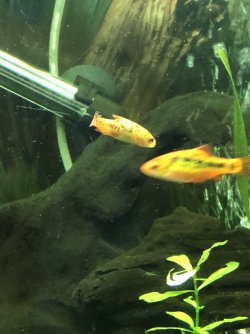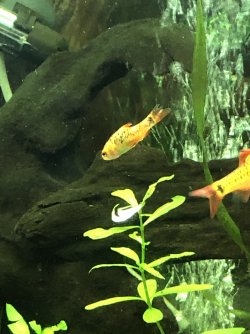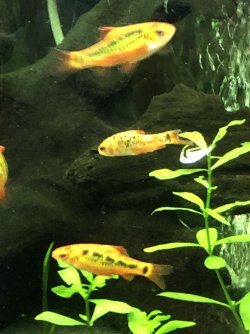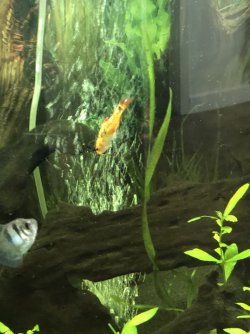dano_fish_boy
New Member
Hi All,
I have a golden barb that has been having issues for months, I have attached pictures, The fish is showing signs of swim bladder and fin rot. but I have treated him for swim bladder, and given the fish two treatments of fin rot.
He often is found floating vertically, his fins seem to be locked into his body and there is a tiny bit missing from his tail, also on occasion his back part of his fin bends. Until the last treatment of fin rot he was extremely pale compared to the other golden barbs very white looking. That has now gone and he is close to the normal colour but not quite.
Its weird because he has been like that for months I thought swim bladder and fin rot generally kills fish within a few weeks or leads to worse things. but he seems ok in himself , when he wants to he swims normal like the other fish, he eats fine,
Any ideas I could be missing something really obvious, is it worth alternating a swim bladder treatment with fin rot or is it something else?
Thanks Everyone
I have a golden barb that has been having issues for months, I have attached pictures, The fish is showing signs of swim bladder and fin rot. but I have treated him for swim bladder, and given the fish two treatments of fin rot.
He often is found floating vertically, his fins seem to be locked into his body and there is a tiny bit missing from his tail, also on occasion his back part of his fin bends. Until the last treatment of fin rot he was extremely pale compared to the other golden barbs very white looking. That has now gone and he is close to the normal colour but not quite.
Its weird because he has been like that for months I thought swim bladder and fin rot generally kills fish within a few weeks or leads to worse things. but he seems ok in himself , when he wants to he swims normal like the other fish, he eats fine,
Any ideas I could be missing something really obvious, is it worth alternating a swim bladder treatment with fin rot or is it something else?
Thanks Everyone





